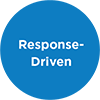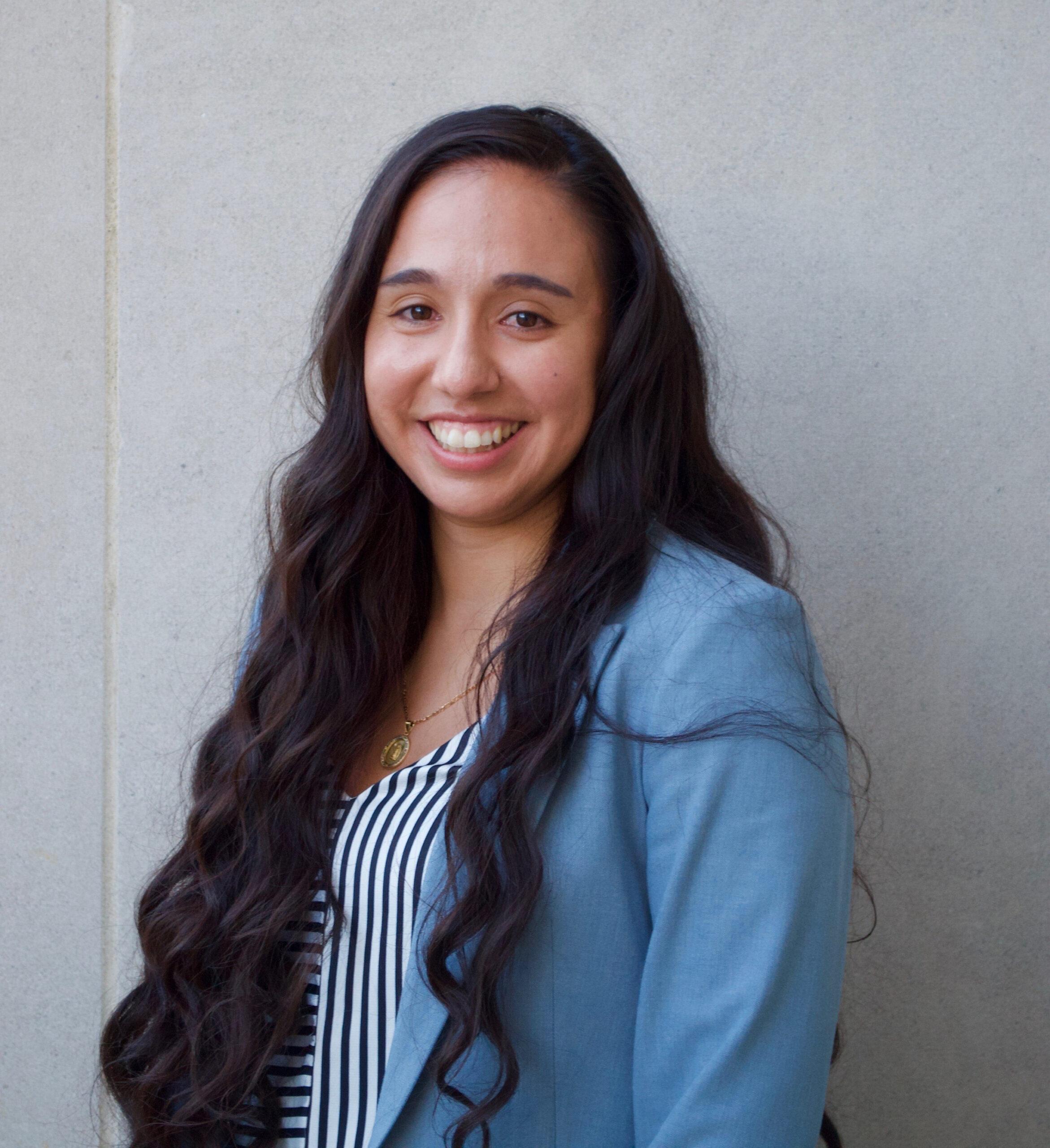The Innovation to Evidence Network (I2E) aims to improve student outcomes by transforming K-12 school systems. I2E provides a system of technical assistance supports for educators, external specialists, and researchers to collaborate, learn together, and access additional expertise and resources that promote systemic change.
Through I2E, participants engage in webinars, convenings, communities of practice, and individual-level support to build their skills, knowledge, and capacity for reaching their programmatic and learning goals.
How We Support Participants
Fundamentally changing school systems is not a linear path—it requires flexibility to continuously evolve plans. As external specialists and researchers, we are flexible and open to what educators and their stakeholders need.
Our approach to supporting participants is rooted in Multitiered Systems of Support (MTSS).[1] As shown in Figure 1, we begin with needs sensing to understand the individual and collective needs of I2E participants.
Based on the needs identified, we provide three levels of technical assistance:
(1) Universal: Supports all participants in building capacity around a shared topic through webinars and annual convenings, provided by Project Evident.
(2) Targeted: Communities of practice that help a group of participants build their capacity around a shared topic, provided by Child Trends.
(3) Intensive: One-on-one meetings that offer tailored support to individual participants for building their capacity around a unique topic, provided by Child Trends and Project Evident.
Figure 1. Our Approach to Supporting I2E Participants
I2E, led by Child Trends and Project Evident, provides technical assistance to seven research-practice partnerships funded by the Chan Zuckerburg Initiative—each working on distinct efforts to innovate a school system.

To ensure that our technical assistance meets participants’ shared and unique needs, our MTSS approach is guided by five principles:

Partnership-centered. We partner with participants to determine the types of supports we provide and how participants will engage with them. This includes learning about the contexts and experiences that shape how participants approach their work.

Stakeholder-engaged. We center the needs of participants and their stakeholders. We work with participants to identify both their needs and the needs of those they hope to impact. As part this work, we seek to learn deeply about participants’ strengths and build on existing capacities.
 Impact-conscious. We help participants amplify the voices, needs, and priorities of those most affected by policies, practices, and structures.
Impact-conscious. We help participants amplify the voices, needs, and priorities of those most affected by policies, practices, and structures.
 Priority-focused. Participants’ priorities—and those of their stakeholders—set the direction for our work.
Priority-focused. Participants’ priorities—and those of their stakeholders—set the direction for our work.
 Response-driven. We are flexible and adaptable in responding to the evolving needs and wants of participants and their stakeholders. If our participants’ goals and priorities change, then we adapt our support plan in response.
Response-driven. We are flexible and adaptable in responding to the evolving needs and wants of participants and their stakeholders. If our participants’ goals and priorities change, then we adapt our support plan in response.
Our mission is to ensure that I2E participants and their stakeholders drive the support they seek, and we believe these principles ensure this mission.
TA Highlight: Re-envisioning Student Surveys With Cajon Valley Union School District
Cajon Valley Union School District (CVUSD) approached our team to help refine their student surveys to better capture the district’s vision for happy kids and healthy relationships. Our team first met with CVUSD to understand their needs—especially what they meant by “happy kids and healthy relationships”—and to learn why their current student survey was not capturing this vision.
Our team designed several participatory activities to help the CVUSD team review and refine every item in the current student survey, and to explore new items that may better capture their vision. Through these activities, our team and CVUSD’s team dropped some survey items, refined other items, and added new ones. These activities resulted in a new and improved student survey, which the CVUSD team quickly disseminated to students. After survey results came back, we met with CVUSD to assess whether the new survey better captured their vision. The results did not disappoint, as response rates were high and responses better captured CVUSD’s vision of happy kids and healthy relationships.
Feedback from Cajon Valley:
“Working with Child Trends is always a pleasure and exciting! We have gained so much in having the Child Trends team as thought partner in the process of trouble shooting our data collection strategies at CVUSD!”
Sharing Learnings Outside of the Network
We share our learnings through the Transforming School Systems Blog Series, which is hosted on Child Trends’ website. This series aims to help practitioners, policymakers, and researchers transform K-12 school systems to better meet the needs of students, families, and communities. Within each blog, we discuss a hot topic in school system transformation, share evidence-based resources, and highlight an example in practice from an I2E participant. Check out our most recent blogs and related research briefs.
Related Research
- Establishing Trusting Relationships to Transform School Systems
- How to Use Practical Measures to Transform School Systems
- Students and Communities Can Be Better Served via Partnerships Between Community Organizations and Schools
- Creating an AI Risk Framework for Education to Protect Students, Families, and Teachers
- AI-Class Framework for Educators and Administrators
- Promising Applications of AI in Education Research
I2E Team Members at Child Trends
Now that we have shared our approach, we are excited to introduce our Child Trends team, which partners with Project Evident to host I2E. Our team consists of individuals with a diverse range of expertise and lived experiences, which lets us effectively meet the needs of I2E participants and their stakeholders. Click each team member’s photo to learn more about them.
Meet Our Researchers
Funder
Chan Zuckerburg Initiative
Footnote
[1] Center on Multi-Tiered System of Supports at the American Institute for Research. (n.d.). Retrieved from: https://mtss4success.org/
© Copyright 2025 ChildTrendsPrivacy Statement
Newsletter SignupLinkedInYouTubeBlueskyInstagram










